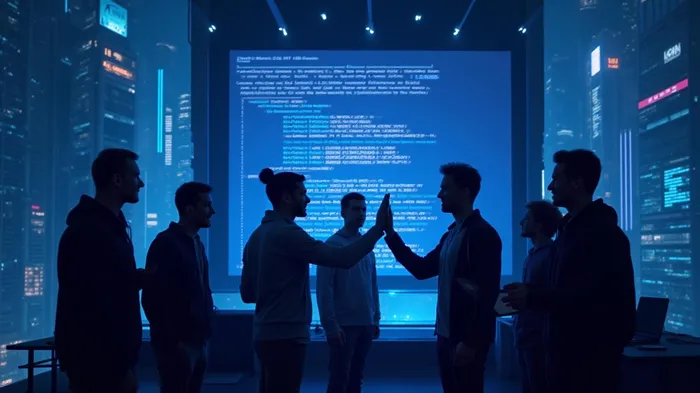NEAR Network Upgrade Reduces Block Time 40% Boosts Developer Efficiency
NEAR Co-Founder Illia Polosukhin recently announced a significant network upgrade, Nearcore 2.6, which introduces Global Contracts and reduces blockXYZ-- time. This upgrade aims to simplify contract deployment and reduce operational complexity for developers. Previously, smart accounts required sufficient balance to cover contract storage costs, which created friction for developers who had to duplicate contracts on each shard. This limitation hindered more complex application behaviors on the NEAR network. The new upgrade addresses these storage cost issues directly, allowing for more efficient and cost-effective contract deployment.
Early results from a community member, @slimedrgn, showed that sponsoring smart wallets for the first 1 million wallets costs about 59 NEAR, with an additional 20 NEAR required as a one-time fee per update on this contract. This example highlighted potential cost savings and deployment efficiency gains across shards, providing developers with practical figures for budgeting upcoming integration work. The upgrade also reduces block time from 1 second to about 600 milliseconds per block, speeding up transactions and improving the overall user experience on the network.
Global Contracts, a key feature of the Nearcore 2.6 upgrade, are accessible across all network shards without duplicate deployments. This change can reduce deployment costs by over 100 times for common contract templates like fungible tokens. Global Contracts solve shard communication challenges by using universalUVV-- contract identifiers, allowing any account to link to the same contract from any shard. Developers no longer need to manage contract copies or handle inter-shard messaging manually, simplifying code bases and allowing modular architecture designs across the protocol. These shared contracts function like common libraries that multiple applications can import and use directly, reducing redundancy and fostering a unified developer experience on NEAR.
NEAR Global Contracts are immutable after deployment, ensuring consistent logic for all users. This immutability provides a reliable reference point for decentralized applications and services. Shared contracts can act as standards or common modules in diverse protocol implementations, benefiting developers with a stable code base and fewer integration errors across different dApps. This model also supports rapid onboarding, as teams can import proven components. Overall, shared global contracts help create a more modular and maintainable ecosystem, allowing project teams to focus on unique features instead of rewriting core contract logic repeatedly.
Despite these benefits, challenges remain around the governance of shared global contracts. Questions persist about which entities should deploy and maintain these network-wide resources. Community-reviewed processes or NEAR-native DAOs could offer transparent approval systems for updates. Security is a priority since a flaw in one contract could impact many applications. Formal verification and strict code audits help reduce the risk of network-wide vulnerabilities. Since contracts are immutable, update mechanisms rely on proxy patterns or modular architecture. Proper planning and design are essential to manage upgrades and maintain long-term stability.
As blockchain platforms evolve, the industry focus shifts to greater accessibility for developers and users alike. The introduction of Global Contracts aligns with this broader trend across protocols. Innovations in cross-shard access and reduced block times reflect a market-wide emphasis on seamless experiences. Standardized shared contracts can lower entry barriers for new developers. Thoughtful governance processes across the sector ensure security and trust. NEAR Co-Founder Illia Polosukhin’s statement highlights how accessible design is becoming a norm, promising more inclusive blockchain ecosystems and better adoption for everyone.

Quickly understand the history and background of various well-known coins
Latest Articles
Stay ahead of the market.
Get curated U.S. market news, insights and key dates delivered to your inbox.



Comments
No comments yet